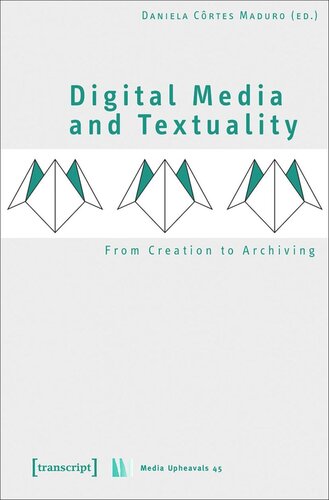

Most ebook files are in PDF format, so you can easily read them using various software such as Foxit Reader or directly on the Google Chrome browser.
Some ebook files are released by publishers in other formats such as .awz, .mobi, .epub, .fb2, etc. You may need to install specific software to read these formats on mobile/PC, such as Calibre.
Please read the tutorial at this link: https://ebookbell.com/faq
We offer FREE conversion to the popular formats you request; however, this may take some time. Therefore, right after payment, please email us, and we will try to provide the service as quickly as possible.
For some exceptional file formats or broken links (if any), please refrain from opening any disputes. Instead, email us first, and we will try to assist within a maximum of 6 hours.
EbookBell Team

5.0
38 reviewsDue to computers' ability to combine different semiotic modes, texts are no longer exclusively comprised of static images and mute words. How have digital media changed the way we write and read? What methods of textual and data analysis have emerged? How do we rescue digital artifacts from obsolescence? And how can digital media be used or taught inside classrooms?
These and other questions are addressed in this volume that assembles contributions by artists, writers, scholars and editors such as Dene Grigar, Sandy Baldwin, Carlos Reis, and Frieder Nake. They offer a multiperspectival view on the way digital media have changed our notion of textuality.